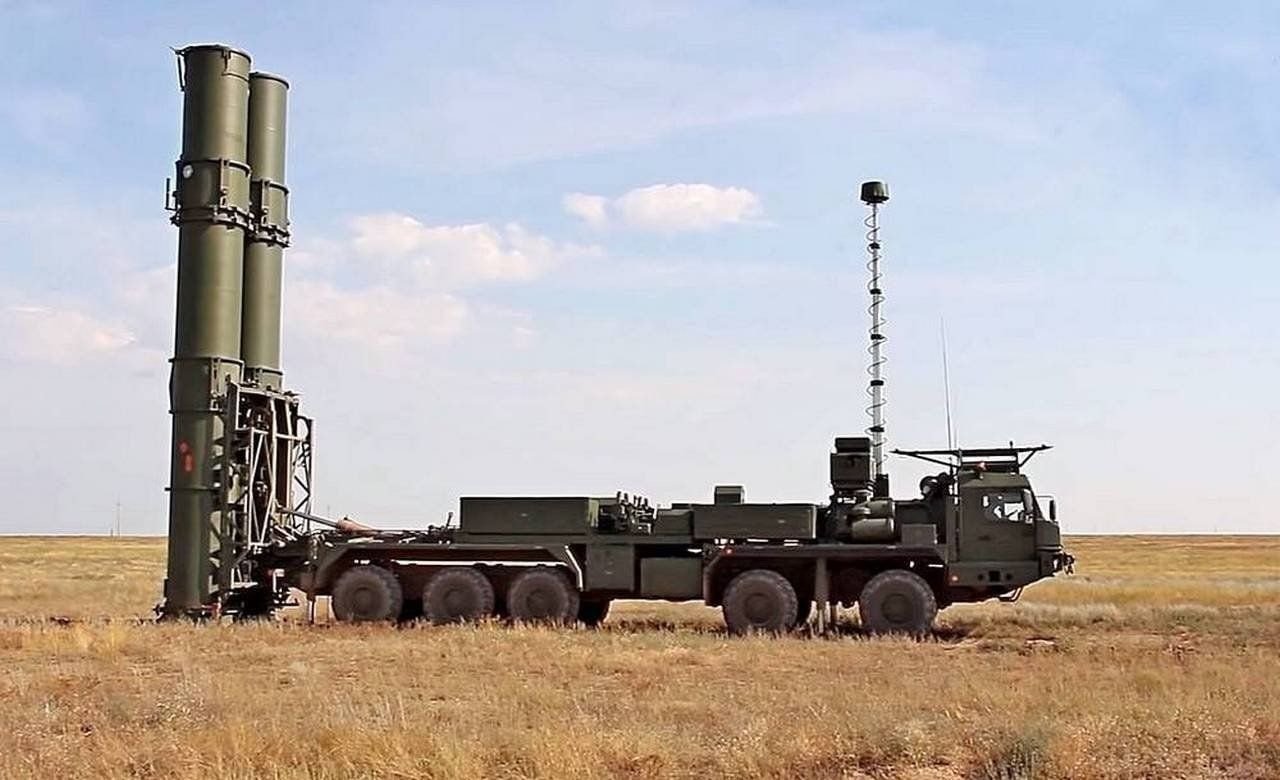(VIDEO) For the First Time, Russia Publicly Unveils the S-500 “Prometheus” System
Despite being embroiled in a conflict with Ukraine, Russia has, for the first time, showcased its Transporter Erector Launcher (TEL) for the long-range S-500 "Prometheus" air defense system at the Russia Army 2024 exhibition in Moscow recently.
(DEFENCE SECURITY ASIA) — Despite being embroiled in a conflict with Ukraine, Russia has, for the first time, showcased its Transporter Erector Launcher (TEL) for the long-range S-500 “Prometheus” air defense system at the Russia Army 2024 exhibition in Moscow recently.
This marks the first instance where Russia has publicly revealed the TEL for its advanced long-range air defense system.
Images of the TEL for Russia’s latest long-range air defense system, which have been circulating on social media, have become one of the exhibition’s main attractions, highlighting the innovative capabilities of the Russian Army’s defense technology.
The unveiling of the S-500 “Prometheus” TEL represents Russia’s effort to display its technological prowess and military strength on the global stage.
The TEL is a critical component of the S-500 long-range air defense system, designed to transport and launch the S-500 missiles, which represent an upgrade over the previous S-400 defense system.
In May, then-Russian Defense Minister Sergey Shoigu announced that the Russian military would begin receiving and operating the S-500 “Prometheus” long-range defense system this year.
The deployment of the S-500 system is part of Russia’s intensified efforts to counter hypersonic missiles, which can travel at speeds up to Mach 10.
The S-500 long-range air defense system, set to be received and operated by the Russian military starting this year, will come in two variants: one for ballistic missile defense (BMD) and the other for long-range air defense.
According to a report by Russian media outlet Izvestia, citing sources from the country’s Ministry of Defense, the military has conducted various tests before operationalizing the system this year.
These tests have demonstrated the S-500’s capability to intercept and destroy hypersonic missiles.

In one test conducted in February this year, the S-500 missile system successfully intercepted and shot down an R-29RMU2 Sineva intercontinental ballistic missile (ICBM).
During this test, the Sineva ICBM, launched by a nuclear-powered submarine in the Laptev Sea, was intercepted by the S-500 air defense system at the Chizha test site in the Arkhangelsk region.
Additionally, the S-500 system underwent testing where it reportedly shot down a Russian satellite, Kosmos-1408, which was destroyed in orbit in November 2021.
The satellite interception test raised concerns in the United States about the system’s anti-satellite capabilities.
The Russian Ministry of Defense stated that the tests conducted have proven that the S-500 air defense system has passed all the necessary evaluations to address current and future aerial threats.
The S-500 system is an overall enhancement compared to the S-400 “Triumf” air defense system.

To engage aerodynamic targets, the S-500 uses the long-range 40N6M interceptor missile, while for intercepting ballistic missiles beyond the Earth’s atmosphere, possibly near space, it employs the 77N6 missile.
Developed by the Russian defense firm Almaz-Antey, the S-500 air defense system is capable of destroying targets at a range of 500 to 600 kilometers and an altitude of 200 kilometers, making it the farthest-reaching air defense system.
This range represents an improvement over the S-400, which can only engage targets up to 400 kilometers away.
The S-500 can simultaneously engage 10 ballistic missile targets traveling at speeds of up to 7 kilometers per second.
A single S-500 air defense battery is equipped with up to four radars, allowing it to detect and track targets at distances ranging from 800 kilometers to 2,000 kilometers. — DSA



Comments are closed.